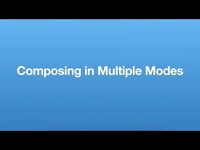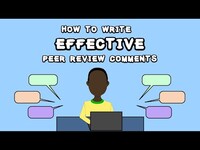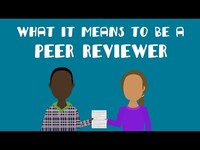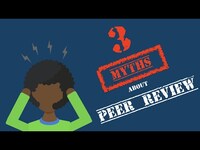Browse
All Objects
| Preview | Title | Description |
|---|---|---|

|
What It Means to Be a Researcher | Introduction to Academic Research |
Learn how to conceptualize your role as an investigator and recognize how context and information need influences your approach to research. |

|
Writing Portfolios for Self-Discovery and Self-Presentation | Curating a Writing Portfolio |
Learn about crafting two different kinds of portfolios: learning portfolios and showcase portfolios. |

|
Using the Stases for Rhetorical Analysis | Rhetorical Analysis Using the Stases |
This video introduces an ordered series of questions that must be addressed to resolve a controversy, collectively known as the stases: first-order questions of fact, cause, and definition and second-order questions of action, value, and jurisdiction. |

|
Three Digital Literacy Myths |
Are digital natives automatically digitally literate? Is digital literacy just about technology? Is digital literacy a replacement for traditional literacy? Discover the truth behind these myths in this video. |

|
Composing in Multiple Modes |
How can different modes of communication be used to reach an audience more effectively? This video will help you find out. |

|
How to Write Effective Peer Review Comments |
What's the difference between higher-order and lower-order concerns in peer review, and how can I write effective peer review comments? Find out in this video. |

|
What It Means to Be a Peer Reviewer |
Is being a peer reviewer the same as grading my classmate's work? Am I supposed to proofread their paper? This video will cover the role of the peer reviewer. |

|
Three Myths About Peer Review |
Do good writers get it right the first time? Can my classmate really give me good feedback on my paper? In this video, we'll dispel common myths about peer review. |